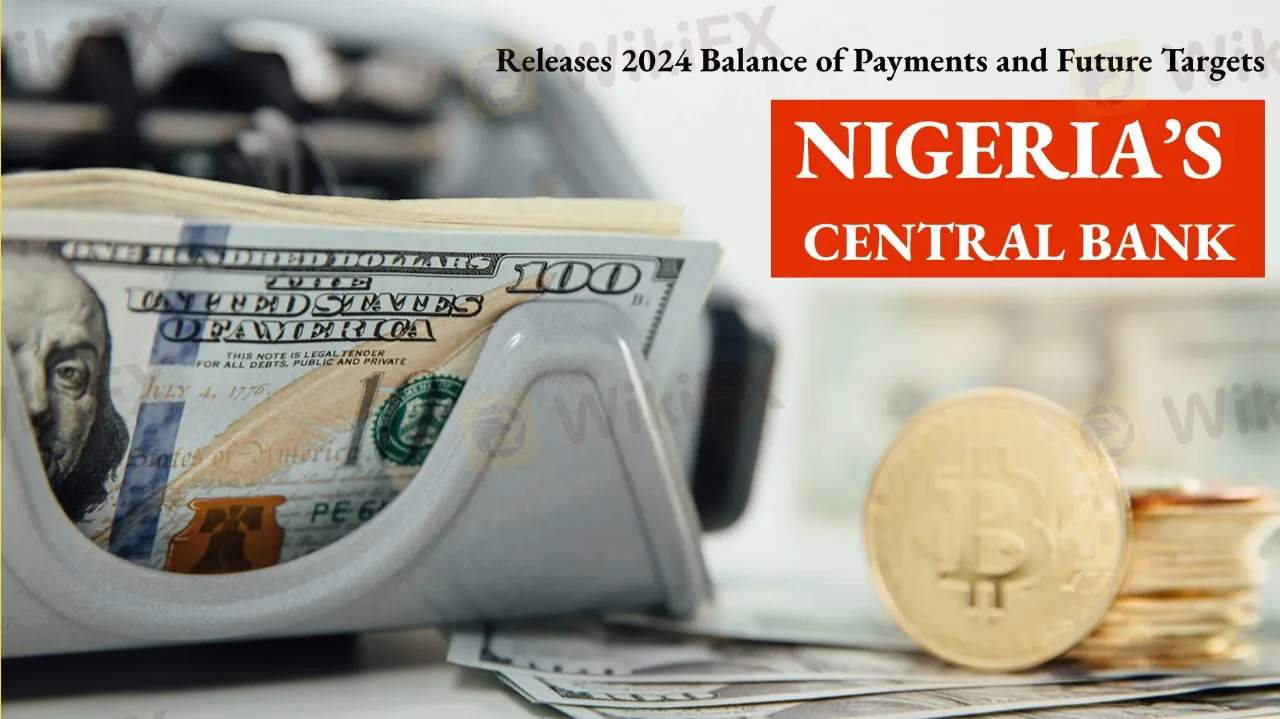简体中文
繁體中文
English
Pусский
日本語
ภาษาไทย
Tiếng Việt
Bahasa Indonesia
Español
हिन्दी
Filippiiniläinen
Français
Deutsch
Português
Türkçe
한국어
العربية
Nigeria’s Central Bank Releases 2024 Balance of Payments and Future Targets
Abstract:In 2024, Nigeria flipped its balance of payments from deficit to surplus—marking a rebound in confidence and policy effectiveness.

In 2024, Nigeria's Central Bank reported a balance of payments surplus of $6.83 billion, reversing deficits from the previous two years. This positive shift was driven by a combination of stronger exports, lower imports, and improved investor flows.
Both gas and non-oil exports recorded double-digit growth, while imports of oil and non-oil products declined, shrinking the trade gap. At the same time, remittance inflows and securities investments surged, helping to boost external earnings. Foreign reserves also rose by $6 billion to $40.19 billion, reinforcing the countrys financial buffer.
Future Strategy Focuses on Financial Inclusion
Building on this momentum, the Central Bank is targeting greater access to financial services. The goal for 2024 is to reach a 95% financial inclusion rate while reducing financial exclusion to 25%.
Although there‘s still ground to cover, progress has been steady over the past few years, reflecting gains in infrastructure and outreach. Increasing the population’s engagement with formal financial systems remains a top priority moving forward.
Despite the encouraging overall performance, certain vulnerabilities remain—particularly the sharp drop in foreign direct investment, highlighting global investors cautious stance. Around one-third of Nigerian adults still lack access to formal financial services.
Striking a balance between currency stability and economic expansion will be key. As global uncertainties persist, sustaining Nigerias recovery will require consistent policy execution and adaptability.

Disclaimer:
The views in this article only represent the author's personal views, and do not constitute investment advice on this platform. This platform does not guarantee the accuracy, completeness and timeliness of the information in the article, and will not be liable for any loss caused by the use of or reliance on the information in the article.
Read more

Israeli Businessman Arrested in Morocco Over Forex Fraud
An Israeli businessman faces extradition to Germany after his arrest in Morocco, charged with defrauding German investors in a forex scam. Interpol issued the arrest warrant.

Never Heard of Dynasty Trade? Here's Why You Should Be Worried
Have you heard this name before? No , it’s time you do because staying unaware could cost you. This platform is currently active in the forex trading and has been linked to several suspicious activities. Even if you’ve never dealt with it directly, there’s a chance it could reach out to you through ads, calls, messages, or social media. That’s why it’s important to know the red flags in advance.

WEEKLY SCAM BROKERS LIST IS OUT! Check it now
If you missed this week's fraud brokers list and are finding it difficult to track them one by one — don’t worry! We’ve brought together all the scam brokers you need to avoid, all in one place. Check this list now to stay alert and protect yourself from fraudulent brokers.

Catch the Latest Update on BotBro & Lavish Chaudhary
BotBro, an AI-based trading platform, became popular in India in 2024—but for negative reasons. Its founder, Lavish Chaudhary, who gained a huge following by promoting it heavily on social media. Since then, he has become well-known, but for many controversies. Let’s know the latest update about Botbro & Lavish Chaudhary.
WikiFX Broker
Latest News
Global week ahead: Crunch time for trade talks as Trump's deadline nears
Top Wall Street analysts recommend these dividend stocks for regular income
Stock futures rise as U.S.-EU trade deal kicks off a hectic week for markets: Live updates
Samsung Electronics signs $16.5 billion chip-supply contract; shares rise
Does XS.com Hold Leading Forex Regulatory Licenses?
European stocks set to rise after the U.S. and EU strike trade agreement
Elon Musk confirms Tesla has signed a $16.5 billion chip contract with Samsung Electronics
Chile Bumps Up Copper Price Forecast and Flags Lagging Collahuasi Output
EU chief to meet Trump in Scotland in push to avoid a transatlantic trade war
Anglo American Q2 2025 Production: Copper and Iron Ore Excel
Currency Calculator



